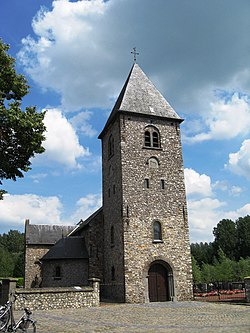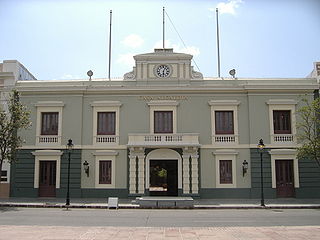
A municipality is usually a single administrative division having corporate status and powers of self-government or jurisdiction as granted by national and regional laws to which it is subordinate.

A ghost town, deserted city, extinct town or abandoned city is an abandoned village, town, or city, usually one that contains substantial visible remaining buildings and infrastructure such as roads. A town often becomes a ghost town because the economic activity that supported it has failed or ended for any reason. The town may also have declined because of natural or human-caused disasters such as floods, prolonged droughts, extreme heat or extreme cold, government actions, uncontrolled lawlessness, war, pollution, or Nuclear and radiation accidents and incidents. The term can sometimes refer to cities, towns, and neighborhoods that, though still populated, are significantly less so than in past years; for example, those affected by high levels of unemployment and dereliction.

A village is a clustered human settlement or community, larger than a hamlet but smaller than a town, with a population typically ranging from a few hundred to a few thousand. Although villages are often located in rural areas, the term urban village is also applied to certain urban neighborhoods. Villages are normally permanent, with fixed dwellings; however, transient villages can occur. Further, the dwellings of a village are fairly close to one another, not scattered broadly over the landscape, as a dispersed settlement.

The Dogon are an ethnic group indigenous to the central plateau region of Mali, in West Africa, south of the Niger bend, near the city of Bandiagara, and in Burkina Faso. The population numbers between 400,000 and 800,000. They speak the Dogon languages, which are considered to constitute an independent branch of the Niger–Congo language family, meaning that they are not closely related to any other languages.
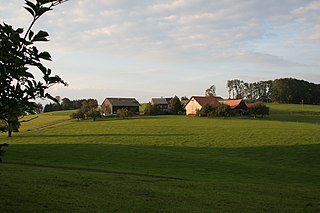
A hamlet is a human settlement that is smaller than a town or village. This is often simply an informal description of a smaller settlement or possibly a subdivision or satellite entity to a larger settlement.

Croisilles is a village and commune in the Pas-de-Calais department of the Hauts-de-France region of France.
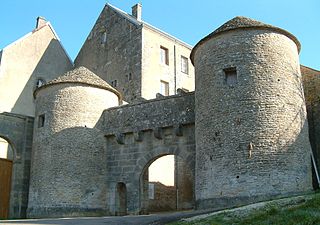
Flavigny-sur-Ozerain is a commune in the French department of Côte-d'Or, in Bourgogne-Franche-Comté.

Burgundy wine is made in the Burgundy region of eastern France, in the valleys and slopes west of the Saône, a tributary of the Rhône. The most famous wines produced here, and those commonly referred to as "Burgundies," are dry red wines made from pinot noir grapes and white wines made from chardonnay grapes.
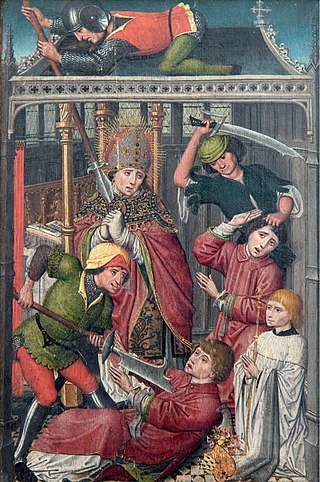
Lambert of Maastricht, commonly referred to as Saint Lambert was the bishop of Maastricht-Liège (Tongeren) from about 670 until his death. Lambert denounced Pepin's liaison with his mistress Alpaida, the mother of Charles Martel. The bishop was murdered during the political turmoil that developed when various families fought for influence as the Merovingian dynasty gave way to the Carolingians. He is considered a martyr for his defence of marriage. His feast day is September 17.
Lotbinière was a federal electoral district in Quebec, Canada, that was represented in the House of Commons of Canada from 1867 to 2004.
The following is a list of the types of local and supralocal territorial units in Quebec, Canada, including those used solely for statistical purposes, as defined by the Ministry of Municipal Affairs, Regions and Land Occupancy and compiled by the Institut de la statistique du Québec.

Les Rousses is a commune in the Canton of Hauts de Bienne of Jura department in the Bourgogne-Franche-Comté region in eastern France, on the Swiss border.

Bois-Bernard is a commune in the Pas-de-Calais department in the Hauts-de-France region in northern France.
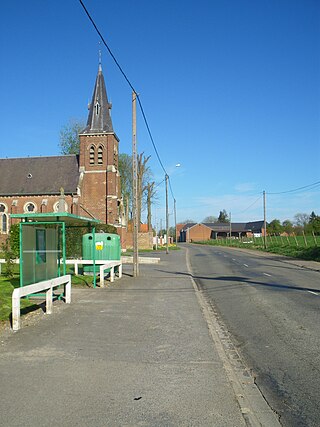
Gommecourt is a commune in the Pas-de-Calais department in the Hauts-de-France region of France.

Hébuterne is a commune in the Pas-de-Calais department in the Hauts-de-France region of France.

Beynac-et-Cazenac is a village located in the Dordogne department in southwestern France.

Hangard is a commune in the Somme department in Hauts-de-France in northern France. The commune is centered on Hangard village.
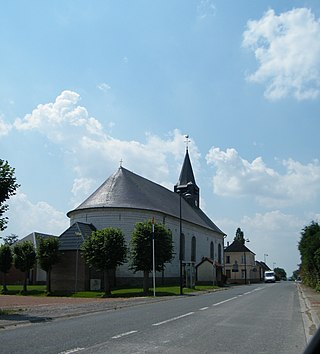
Varennes is a commune in the Somme department in Hauts-de-France in northern France.

General elections were held in the Netherlands on 17 May 1853. They followed the dissolution of the House of Representatives as a result of a government crisis caused by the restoration of the episcopal hierarchy.
